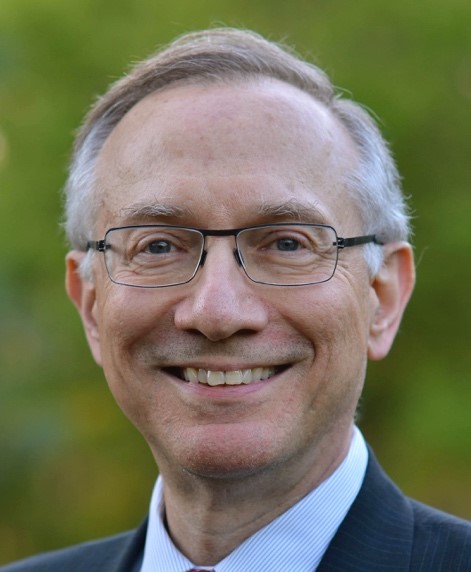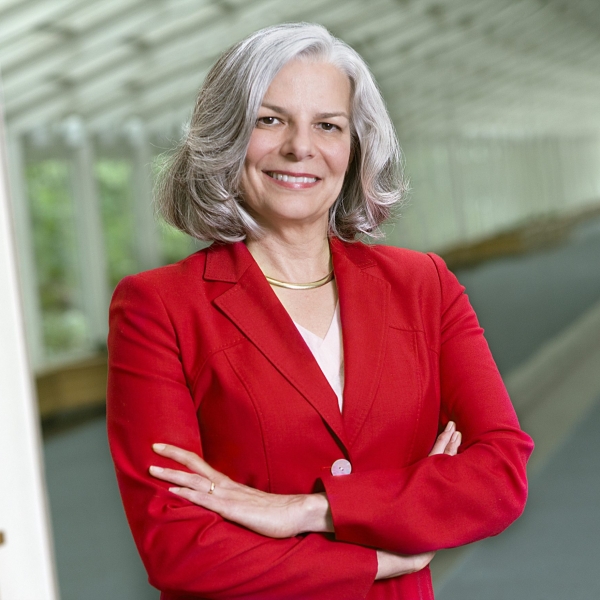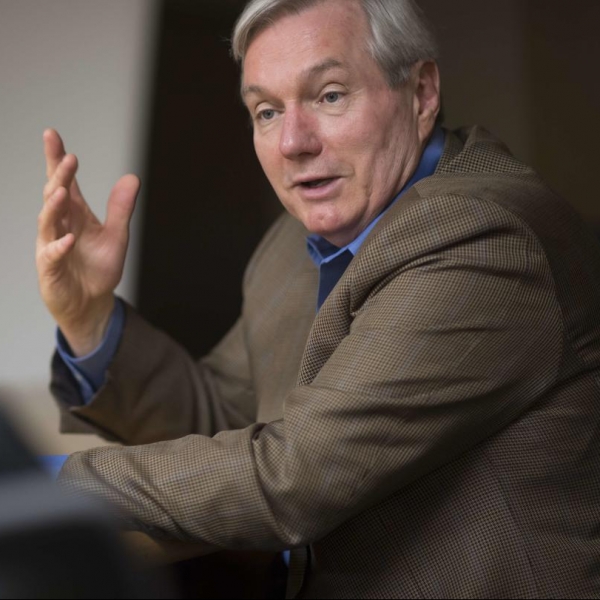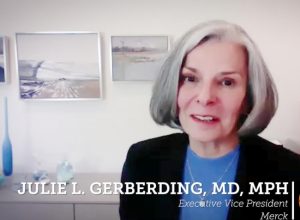Episode 3: Now is the Time to Protect the World from Influenza
Astonishing progress toward successful COVID-19 vaccines has built momentum to conquer infectious disease threats. In our latest video, infectious disease experts Harvey Fineberg, Julie Gerberding, Edward Holmes, Michael Osterholm and Lynda Stuart say a full-court press for a universal influenza vaccine should be next.
Pandemic Protection is Within Reach
As 2020 dawned, the virus now known as SARS-CoV-2 was spreading insidiously across a world almost entirely unaware of its presence. Within weeks it had ignited a pandemic that by year’s end is projected to claim nearly 2 million lives — a crisis that in turn sparked an unprecedented effort to produce vaccines against the coronavirus. Just as unimaginable — in 2019 — as the destruction COVID-19 would cause, is the likely prospect that at least two vaccines effective against a novel virus could be released within a year of its discovery.
Having glimpsed the light at the end of the tunnel that these vaccines represent, we must sustain momentum for vaccine development and apply it to avert future pandemics. Indeed, infectious disease experts say, we could potentially magnify the success of the COVID-19 vaccine effort by focusing next on a pandemic we know is coming — influenza — and on a broadly-protective, long-lasting universal influenza vaccine (UIV) that could stop any novel flu virus before it spreads.
“If you look at the risk assessment of what might emerge next and cause a big pandemic, flu is still number one” – Edward Holmes
In our latest video, five prominent voices in public health and infectious disease research make the case for pivoting from successful COVID-19 vaccines to the pursuit of a UIV: Julie Gerberding, chief patient officer and executive vice president at Merck and former CDC director; Michael Osterholm, director of the Center for Infectious Disease Research and Policy (CIDRAP) at the University of Minnesota and member of President-elect Biden’s COVID-19 advisory board; Lynda Stuart, deputy director of Vaccines and Human Immunobiology at the Bill and Melinda Gates Foundation; Edward Holmes, of the University of Sydney, Australia; and, Harvey Fineberg, president of the Gordon and Betty Moore Foundation, co-chair of the Sabin-Aspen Vaccine Science and Policy Group, and chair of the Standing Committee on Emerging Infectious Diseases and 21st Century Health Threats of the National Academies of Science, Engineering and Medicine, convened by request of the federal government in response to the coronavirus pandemic.
The influenza community has figured prominently in the response to COVID-19, with researchers, policy makers, and thought leaders bringing their vast expertise to fight the pandemic. At the same time, they have witnessed profound change in the vaccine development ecosystem, spanning research culture, funding structures and sources, and regulatory policy — as well as critical advancements in science and technology. As influenza experts return to pursuing the UIV they so strongly advocate, their quest should be accelerated by productive shifts forced upon the vaccine research and development ecosystem by COVID-19.
“If we had the template of a UIV, we would be prepared ahead of time, ready to deploy the vaccine at the first sign of the outbreak”-Harvey Fineberg
To support this goal, the Influenzer Initiative has launched several projects to explore how the COVID-19 experience can inform the future of the vaccine ecosystem. We aim to highlight novel and improved approaches to vaccine development, to identify factors that both enable and hinder progress toward safe and effective vaccines against SARS-CoV-2, and to assess the potential impact of this global endeavor on prospects for UIV development. Building on the remarkable collaborative scientific and technical response to COVID-19, we are also undertaking development of an innovation agenda for UIV development. This effort will begin in 2021 with a convening of researchers from diverse scientific and technological disciplines, in order to introduce new perspectives and novel tools to multiple challenges facing UIV development.
Encouraged by the powerful scientific and technical response to COVID-19, as well as by the urgency of the pandemic threat posed by influenza, the Influenzer Initiative seeks to harness the momentum and resources brought to bear against this pandemic to advance a UIV: the best means of avoiding another, more potentially devastating catastrophe.
The Experts

Harvey Fineberg
President, Gordon and Betty Moore Foundation
A former president of the Institute of Medicine (now the National Academy of Medicine), Fineberg is also board chair of the Science Philanthropy Alliance and co-chair of the Sabin-Aspen Vaccine Science & Policy Group.
In 2020, Fineberg assumed an additional chairmanship: leading the Standing Committee on Emerging Infectious Diseases and 21st Century Health Threats of the National Academies of Science, Engineering and Medicine. Convened by request of the federal government in response to the coronavirus pandemic, the committee hosts discussions that inform national decision making on disease preparedness and response, explore lessons learned from previous efforts, identify best practices, and develop strategies for addressing misinformation.

Julie Gerberding
Chief Patient Officer and Executive Vice President, Merck & Co.
In her role at Merck, Gerberding is responsible for a broad portfolio focused on patient engagement, strategic communications, global public policy, population health and corporate responsibility. She joined the company in 2010 as president of Merck vaccines.
Previously, Gerberding served as director of the U.S. Centers for Disease Control and Prevention (CDC), leading the agency through more than 40 emergency responses to public health crises. The dozens of honors and awards she has received include the U.S. Department of Health and Human Services (DHHS) distinguished service award, for her leadership in the response to anthrax bioterrorism and to the September 11, 2001 attacks. Gerberding is a member of the National Academy of Medicine and a fellow of the Infectious Diseases Society of America and the American College of Physicians.

Edward Holmes
Professor, University of Sydney, Australia
Known for his work on the evolution and emergence of RNA virus pathogens, Holmes was awarded the Australian Research Council’s five-year Australian Laureate Fellowship in 2017. He has studied the emergence and spread of viral diseases including COVID-19, influenza, dengue, HIV, hepitatis C, myxomatosis, rabbit hemorrhagic disease, and plague. Previously he held the Verne M. Willaman Chair in the Life Sciences at Pennsylvania State University and was an Affiliate Member of the Fogarty International Center (2005-2012) at the NIH.

Michael Osterholm
Director, Center for Infectious Disease Research and Policy (CIDRAP)
At the University of Minnesota, home of CIDRAP, Osterholm wears many hats: he is also Regents Professor and McKnight Presidential Endowed Chair in Public Health, Distinguished Teaching Professor in the Division of Environmental Health Sciences in the School of Public Health, a professor in the Technological Leadership Institute in the College of Science and Engineering, and an adjunct professor in the Medical School.
In November 2020, Osterholm was appointed to the Biden-Harris Transition COVID-19 Advisory Board.
Osterholm is also co-author of the New York Times best-selling book, Deadliest Enemy: Our War Against Killer Germs (2017), which features a nine-point strategy to address infectious disease threats—beginning with preventing the next influenza pandemic.
More from Michael Osterholm

Lynda Stuart
Deputy Director of Vaccines and Human Immunobiology, Bill and Melinda Gates Foundation
Stuart leads a team focused on sourcing novel approaches and accelerating the discovery, development, and translation of new passive and active immunization strategies for diseases deemed priorities by the foundation. She remains actively involved in basic research.
Prior to joining the foundation in 2016, Stuart was a faculty member at the Massachusetts General Hospital and at Harvard Medical School. There she co-directed the Laboratory of Developmental Immunology and was a member of the Center for Computational and Integrative Biology, an affiliate of the Broad Institute of Harvard and MIT. She also served on the Massachusetts General Hospital Executive Committee for Research.
More from Lynda Stuart
Related Resources

Episode 4: Applying Lessons Learned from COVID-19 to Prevent Influenza Pandemics
Alan Bernstein, Julie Gerberding, Edward Holmes, Mike Osterholm, Lynda Stuart, and Holden Thorp consider what COVID-19 can teach us about pandemic preparedness, vaccine development, and public health policy.
